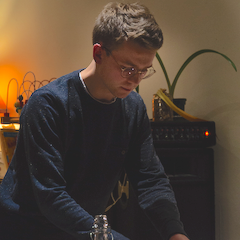Wealthy, comfortable and content, Fritz is a middle-aged bachelor with a vineyard and a small circle of diverse and loyal friends. He feels no compulsion at all to experience true love. Furthermore, it is his birthday and he is visited by his drinking buddies Federico and Hanezo, as well as the gypsy Beppe. But the desirous machinations of the opera’s narrative are ignited by discussions with his rabbi friend, David, on the topic of love, and his meeting with Suzel, a local farmer’s daughter to whom he slowly becomes attracted under David’s bet that he will soon marry. Thus begins the astoundingly trivial plot of Pietro Mascagni and librettist Nicola Daspuro’s L’amico Fritz, a curious, insignificant, but nonetheless quite enjoyable, opera based on the tale of rural Alsace by Emile Erckmann and Charles Chatrian. Indeed, it was a relief to read in the programme that Verdi considered it “the worst libretto I’ve ever seen”.
If we were looking for evidence that opera today is essentially inoffensive, conservative entertainment for older audiences, we need not have looked further than this Sunday matinee production. Conductor and Musical Director of Scottish Opera Stuart Stratford’s ten-minute introductory speech came across as a slightly desperate attempt to convince us of the worth of Mascagni’s second opera, which will forever be obscured by the immense popularity of Cavalleria rusticana.
Concert performances of opera are never easy to make effective and the awkward stage blocking and almost non-existent acting on this occasion did not help matters. But while L’amico Fritz may lack the musical sophistication and taste of Puccini, the rather variable musical quality of this production provided just about enough to get by. Soprano Natalya Romaniw’s Suzel deserves mention as the singular highlight with an understated, nuanced characterisation and an expressive voice which, perhaps on another occasion, could deliver even more. Baritone Stephen Gadd’s David was rich and authoritative, if not quite capturing the enigma of his character’s strange role in the unfolding drama. Tenor Peter Auty struggled commendably as Fritz, perhaps owing to an off-day, and was unfortunately overpowered a number of times by the orchestra (although this was the case with other singers as well). In general, the orchestra gave a full-blooded rendition, if very rough around the edges, of Mascagni’s sumptuous score.
To whom exactly is Fritz ‘the friend’? And what does the opera tell us about friendship and love? Presumably as a product of its time and place, L’amico Fritz presents a staid and patriarchal vision. It is much more difficult to reinterpret or redeem an opera like this in today’s social climate than, say, the strong-willed, albeit sometimes self-destructive, women, or the uncompromising desires and political consciousness of the finest work by Mozart or Wagner or Puccini. It takes Fritz the entire opera, and finally the male-chauvinistic envy of an another suitor, to confess his love to Suzel. Portrayed as barely even a thinking subject, Suzel herself is as docile as can be and one does wonder what it is in Fritz that causes him to recognise what his life lacks and fall in love at all, especially when Beppe arrives every so often to nourish his ego in song. Perhaps ultimately we must conceive of this opera from the perspective of the rabbi David: it is he whose friend is Fritz, and it is his bet that earns him the vineyard, which he can then graciously give back as a wedding gift.
To programme regular low-budget performances of smaller operas is an admirable project and one which is absolutely necessary to make this artform a relevant aspect of contemporary cultural life. Scottish Opera’s L’amico Fritz is a pleasurable diversion, but it takes a lot more than this to reconfigure the status of such an ambivalent and under-appreciated work. The plot is fascinatingly banal and Mascagni’s music is fascinatingly, sometimes hilariously, excessive. With the help of a bold, imaginative director and even just minimal staging, some surprising new angles could be unearthed.


